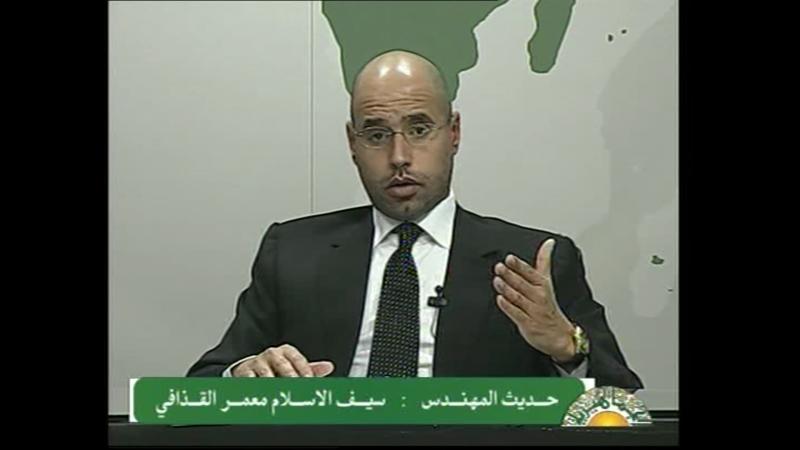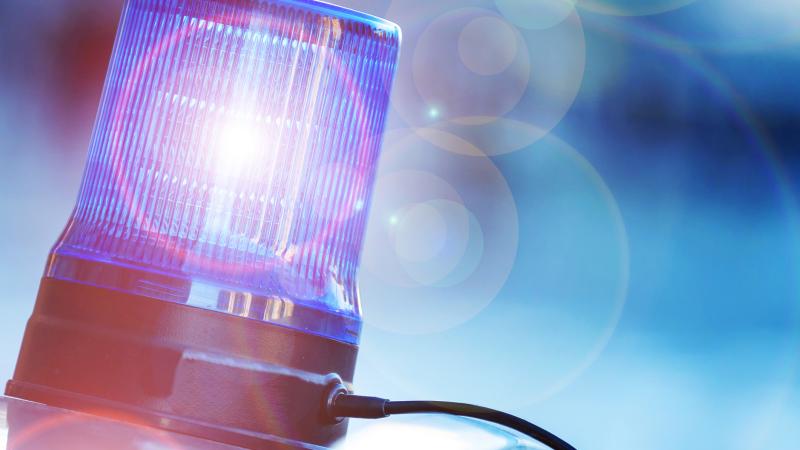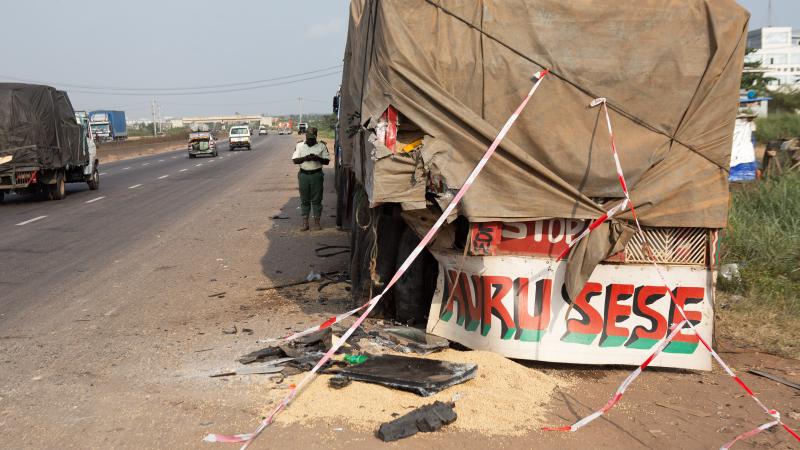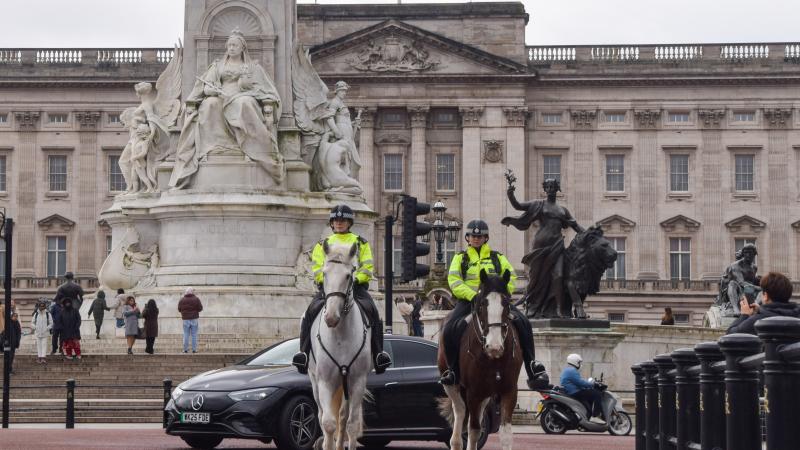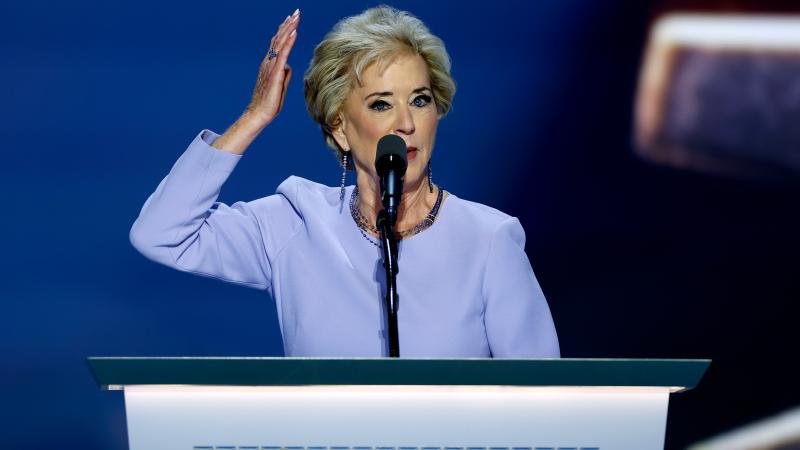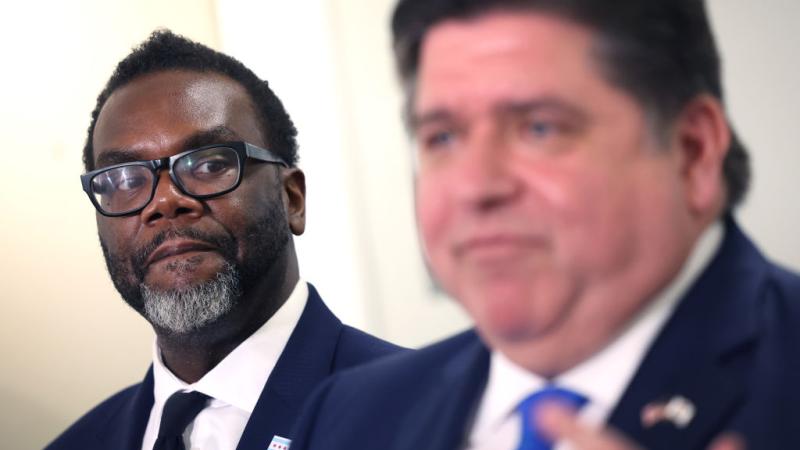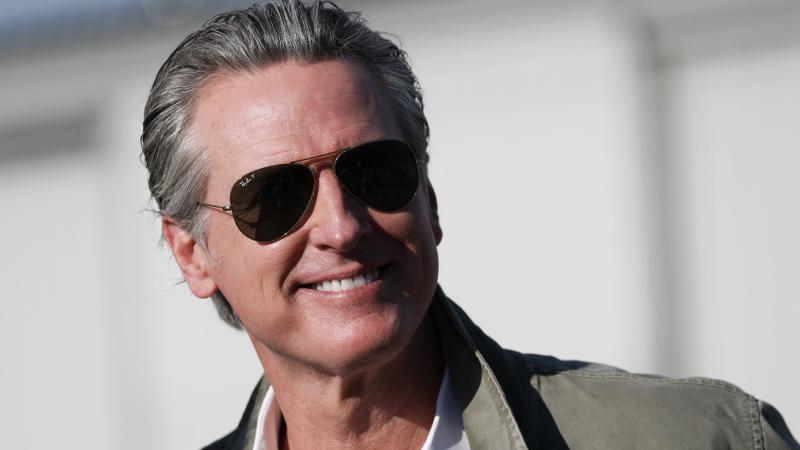Biden-era reports, genocide group confirm Trump’s human rights fears for South African farmers
Trump's video evidence of hate directed at Afrikaners met with quibbles about what genocide means.
The tit-for-tat battle the news media has waged against President Donald Trump over his administration's South African refugee policy is masking a harsh reality: that the country's farmers do in fact face a crisis of violence.
Even Biden-era government reports and genocide watch group have raised flags, mostly being ignored until now. The only question is whether race or greed is the motive for the crimes.
“We have many people that feel they’re being persecuted, and they’re coming to the United States,” Trump said in the Oval Office meeting with South African President Cyril Ramaphosa on Wednesday. “People are fleeing South Africa for their own safety. Their land is being confiscated, and in many cases, they’re being killed.”
The problems that President Trump identified in his meeting with the South African president, from rural violence that affects white South Africans—known as Afrikaners or Boers—to a legal regime promoting race-based property seizures, are certainly real—but debate rages about whether it rises to the level of “genocide.”
A background of violence
A Biden-era State Department report on human rights conditions in South Africa cited data from a “civil society organization” that in 2021 and 2022 there were 748 total farm attacks and more than 100 killings targeting white South Africans. The report noted, however, though some advocacy groups asserted that white farmers were targeted for burglaries, home invasions, and killings because of their race, it is unclear whether the attacks are actually just part of South Africa’s exorbitant crime rate.
The country is the most violent in Africa, boasting the world’s third-highest murder rate (according to 2023 data), leading many observers to suggest that the violence experienced by white South African farmers does not meet the traditional definitions of a genocide.
Adding to defining the problem as everyday murder, “South Africa has one of the highest crime rates in the world. Its murder rate of 34 per 100,000 population, tenth in the world, is exceeded only by the narco-states of Central and South America. It has, by far, the highest murder rate in Africa,” Genocide Watch, a Washington-based organization founded by former State Department employee Gregory Stanton, wrote in a country report.
“If the state's first duty is to provide personal security to its people, South Africa is a failed state,” the group wrote.
Genocide Watch specifically cites a failure to prosecute murderers who targeted white farmers, which it says contributes to a culture of impunity as the general murder rate remains high.
President Trump on Wednesday suggested the attacks were part of a “genocide” specifically targeting white South Africans, specifically forcing the unsuspecting South African president to watch videos showing calls from radical communist politician Julius Malema to “Shoot the Boers.” Malema was previously convicted under the country’s hate speech laws in 2011 for singing a song by that title, popularized deputy minister in Nelson Mandela’s government in the 1990s.
Genocide Watch agrees that Malema and his Marxist Economic Freedom Front party “encourages these murders, which are meant to terrorize farmers into emigrating from South Africa” and noted “White farmers are defenseless because South Africa outlawed private gun possession and disbanded the mutual protection cooperatives.”
Though Afrikaners make up roughly 8% of the population, they are the victims of only 2% of murders, veteran South Africa reporter Geof Hill reported in 2023. And, the problem may be even worse in urban areas—four of South Africa’s cities of over 300,000 people are among the world’s 50 most dangerous cities.
Legacy media calls the rampage "inaccurate"
Trump's opponents largely reacted by challenging the existence of the attacks despite the videos. Instead, the headlines blared that South African President Cyril Ramaphosa was "ambushed" by Trump's video exposition, and then turned to denying the underlying facts that Trump's videos presented.
Reuters ran a headline that was in chorus with others: "Trump confronts South Africa's Ramaphosa with false claims of white genocide." The dialogue between the two is reported as saying that Trump told Ramaphosa that these were white farmers fleeing violence directed at them in South Africa.
“We have many people that feel they’re being persecuted, and they’re coming to the United States,” said Trump, according to Al-Jazeera. "People are fleeing South Africa for their own safety. Their land is being confiscated, and in many cases, they’re being killed.”
Reportedly, Ramaphosa denied allegations of a “white genocide” in South Africa. “If there was Afrikaner farmer genocide, I can bet you, these three gentlemen would not be here,” the South African president said, referring to white South African golfers who accompanied him to visit the White House.
Part of the reaction from critics is fueled by a focus on the truth or falsity of "genocide" as opposed to what might be categorized as typical crimes. Determining the exact number of white South Africans murdered is difficult because South Africa's official crime statistics are not broken down by race.
Prior to the visit, PBS purported to fact-check Trump's previous statements on the situation in South Africa, and verified the core of what Trump was saying. "White farmers have been murdered in South Africa. But those murders account for less than 1% of more than 27,000 annual murders nationwide," PBS wrote.
According to the South African Police Service (SAPS), the number of murders in South Africa for the period from April to December 2024 was 19,696. That would put the estimated number of whites murdered in South Africa at 196 people.
Whether it's mass murder or genocide or simply a random fact of crime statistics from a violent land, Trump's videos are forcing political leaders — and the public — to pay attention to the murders.
Apartheid's legacy
“Crime affects both Black and White. …It’s an issue of vulnerability,” South African farmer Thobani Ntonga, who is black, and himself a victim of a farm attack, told the Associated Press.
“Farmers are separated from your general public. We’re not near towns, we are in the rural areas. And I think it’s exactly that. So, perpetrators, they thrive on that, on the fact that farms are isolated.”
White farmers tend to agree with this assessment. “Crime especially hits small-scale farmers worse because they don’t have resources for private security,” Afrikaner farmer Willem de Chavonnes Vrugt said.
“We are not interested in going anywhere,” he added. “The thing we want to do is be part of this country.”
Farm attacks have been endemic to South Africa, particularly since the end of apartheid in the mid-1990s. Under that system, Afrikaners ruled over the majority black population with unequal representation and voting rights, and a tradition of repression against voices calling for more Black involvement in government and society.
New land expropriation law followed by violence
Because of their higher status in society under apartheid, white South Africans owned the vast majority of private land, a situation that has barely changed since the end of the discriminatory system. About three-quarters of all privately owned land in South Africa is still owned by Afrikaners, who are only 8% of the population. This ratio has changed little from the original 87% of land set aside for whites by the Natives' Land Act of 1913.
In January, South African President Cyril Ramaphosa signed a land expropriation law, which permits the government to seize private property for public purposes without compensation if the government deems it is “just and equitable and in the public interest” to do so.
The law aims to address the disparity in land ownership between the country’s white and black citizens, replacing a 1975 law that required just compensation for land under a "willing seller, willing buyer,” BBC News reported.
This act spurred the Trump administration to deem that Afrikaners have faced increasing state-backed racial discrimination, which in some cases warrants asylum in the United States. To that end, the president in February ordered federal agencies to halt aid to the country and promote the resettlement of Afrikaner refugees in the U.S.
“This Act follows countless government policies designed to dismantle equal opportunity in employment, education, and business, and hateful rhetoric and government actions fueling disproportionate violence against racially disfavored landowners,” President Trump wrote in an executive order.
It described the new land expropriation act as part of a “government-sponsored race-based discrimination” scheme targeted at the white population aimed at correcting past injustices.
The executive order was panned by the South African government, which called it “politically motivated” and that the accusations against them were based on “unfounded allegations” about racial persecution in the country.
“The South Africa Police Services statistics on farm-related crimes do not support allegations of violent crime targeted at farmers generally or any particular race,” the South African government said in a February statement.
“There are sufficient structures available within South Africa to address concerns of discrimination. Moreover, even if there are allegations of discrimination, it is our view that these do not meet the threshold of persecution required under domestic and international refugee law.”
South Africa as a global player
President Trump also raised South Africa’s hostility towards American geopolitical interests, citing its aggressive positions towards U.S. allies like Israel. Following the October 7 attack by Hamas against Israel, South Africa submitted a case to the International Court of Justice—the United Nations global court—alleging Israel is committing genocide in its war in Gaza.
South Africa has also deepened its relationship with China, hosted joint naval exercises with Russia, maintained commercial ties with Iran, and has politically supported both Hamas and Hezbollah, two U.S.-designated terrorist organizations, each of which has boasted of their role in thousands of terror-based murders.
State Department spokesperson Tammy Bruce said on Thursday that "When you’re passing laws like that, that target a group ostensibly sending a message to the population that these people have a price to pay…combined with the chants to kill Boers…in addition to the association South Africa and its president have chosen to make, like with Iran…it creates a picture that is worthwhile to have a conversation in the Oval Office.”
The Facts Inside Our Reporter's Notebook
Links
- wrote in a country report
- State Department report on human rights conditions in South Africa
- according to 2023 data
- veteran South Africa reporter Geof Hill reported in 2023
- four of South Africaâs cities
- Reuters
- according to Al-Jazeera
- told the Associated Press
- PBS wrote
- South African Police Service
- three-quarters of all privately owned land
- 87% of land set aside
- BBC News reported
- wrote in an executive order
- deepened its relationship China
- submitted a case
- boasted
- State Department spokesperson Tammy Bruce said on Thursday
- statement
